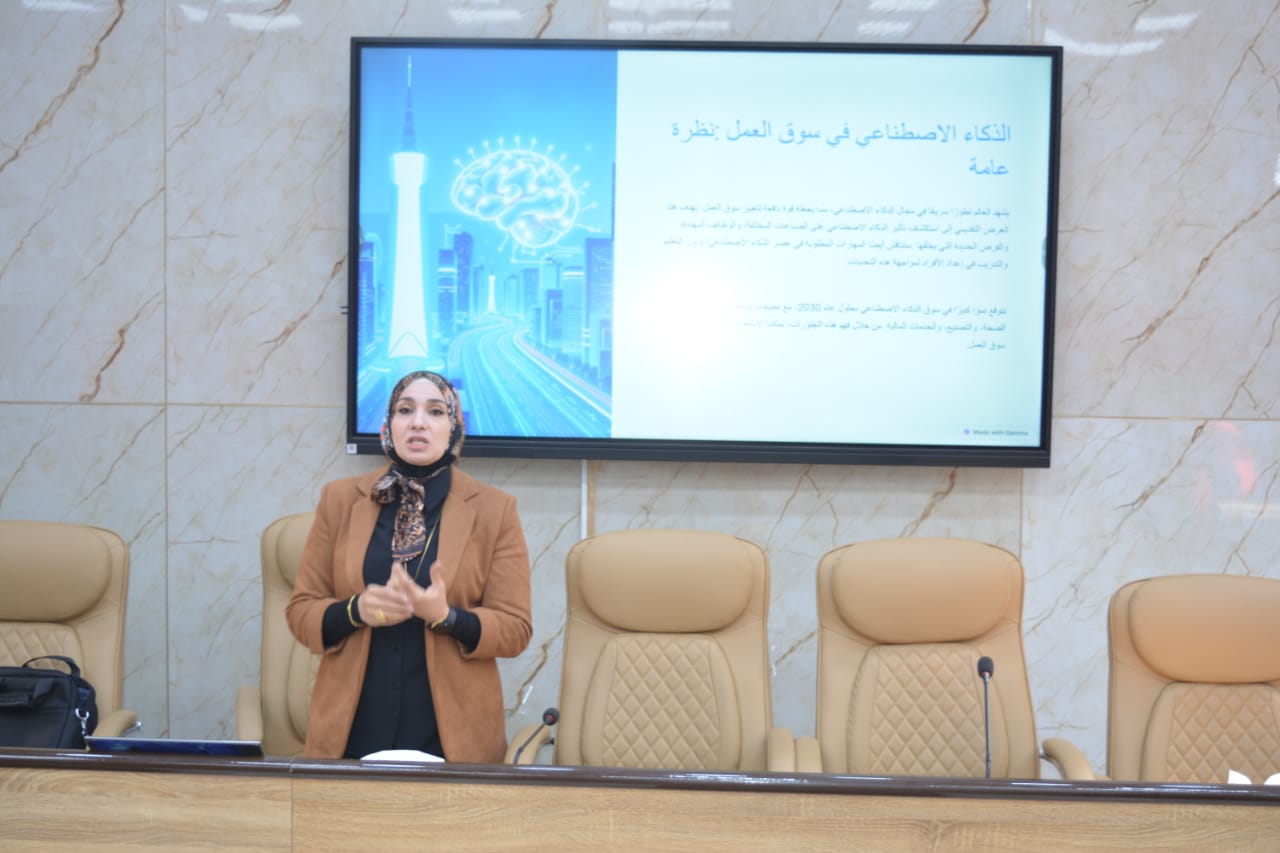The Rehabilitation, Employment, and Follow-up Unit at the College of Physical Education and Sports Sciences for Girls at the University of Baghdad, under the patronage of its Dean, Prof. Dr. Fatima Abd Malih, and the supervision of Asst. Lecturer Safia Ihsan hosted Asst. Prof. Noor Thamer Mahmoud from the Department of Computer Science at the College of Science, Al-Mustansiriyah University, for a workshop titled (Artificial Intelligence in the Job Market).
Dr. Noor Thamer highlighted the distinction between soft skills and technical skills in the era of artificial intelligence (AI). She explained that soft skills help individuals adapt to rapid changes in the job market and work effectively with AI systems. These skills include critical thinking, problem-solving, creativity, collaboration, and communication. Meanwhile, technical skills relate to the development, implementation, and maintenance of AI systems, covering areas such as programming, machine learning, data analysis, and cybersecurity.
The workshop also explored the role of AI in fostering innovation in startups, particularly given their rapid growth and evolving challenges. Additionally, ethical and legal considerations in AI were discussed, including privacy issues, security concerns, bias, and accountability.
Another key focus was the importance of education and training in adapting curricula and creating training programs to prepare individuals for this technological era. The discussion also addressed AI’s transformative impact on critical sectors such as healthcare, financial services, manufacturing, and transportation.
At the conclusion of the workshop, Ms. Safia Ihsan presented Dr. Noor with a letter of appreciation for her outstanding efforts in organizing an insightful technological workshop that emphasized the growing importance of AI in today’s world.
This workshop contributes to the achievement of the United Nations Sustainable Development Goals (SDGs), particularly Goal 4 (Quality Education) and Goal 17 (Partnerships for the Goals), by promoting knowledge and fostering collaboration in AI education and workforce readiness.
